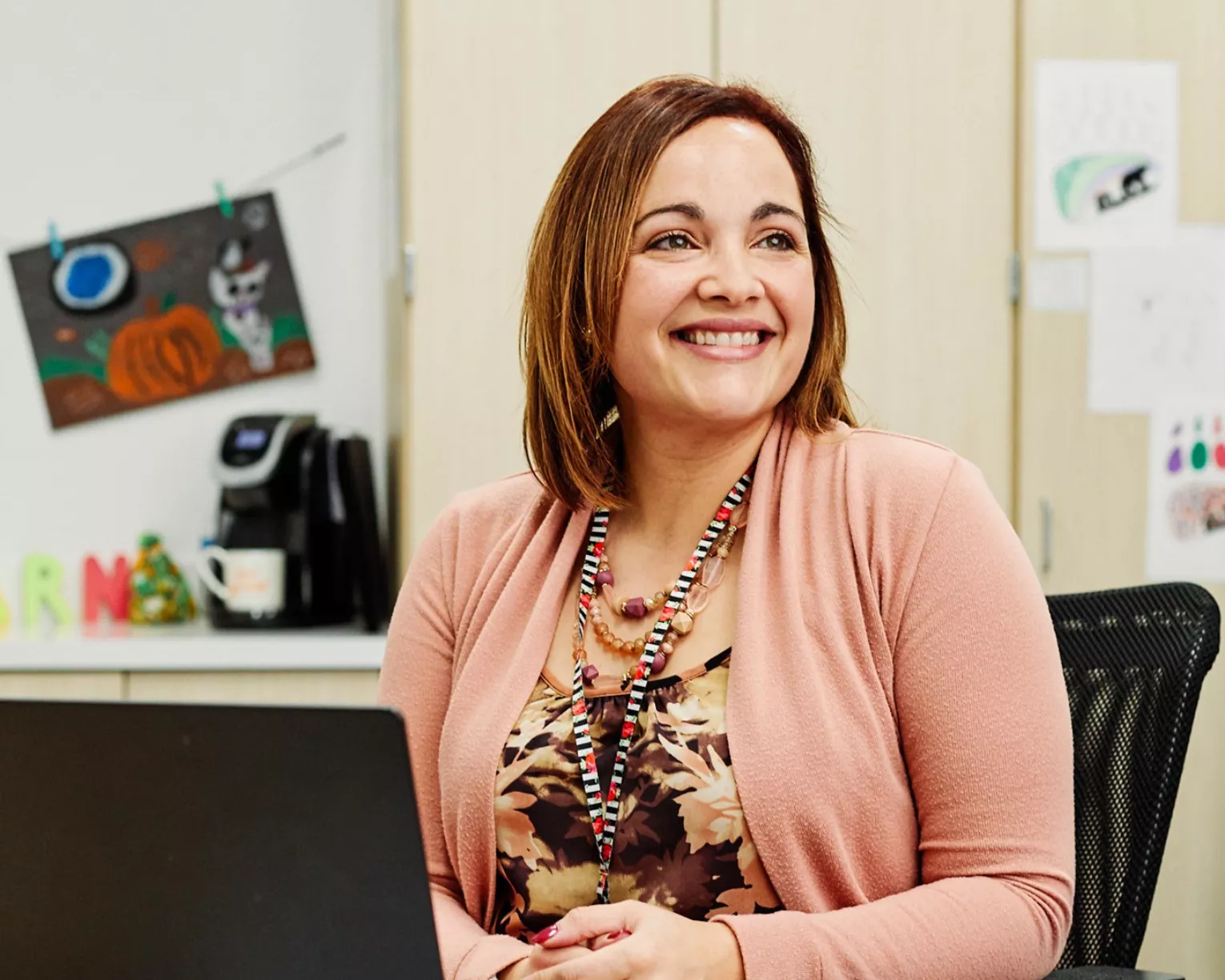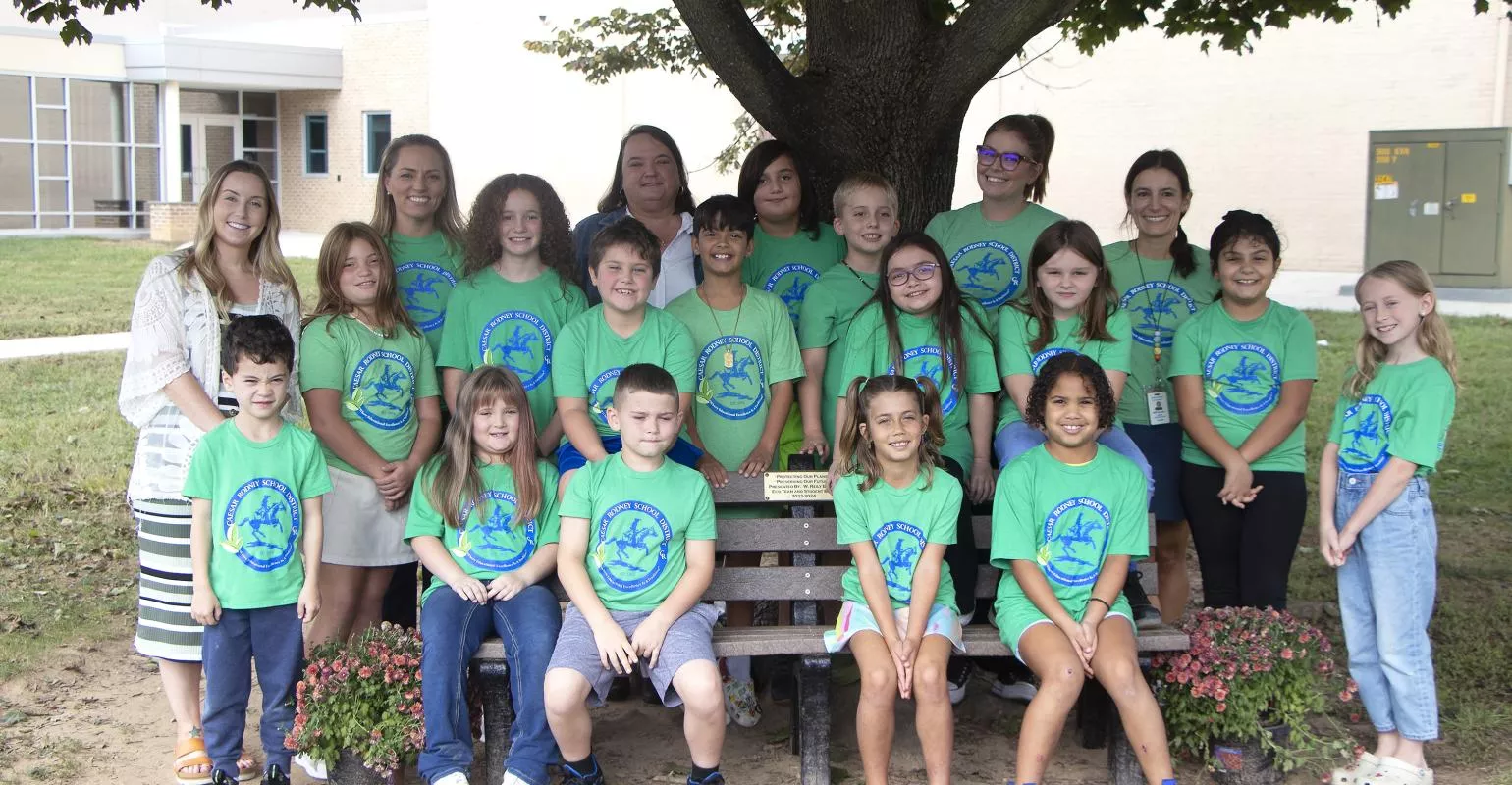At W. Reily Brown Elementary School in the Caesar Rodney School District, a small but impactful student group, known as the Eco Team, is fostering environmental awareness and leadership skills in students from first through fifth grade.
Under the guidance of Patricia Moore, a DSEA member and Paraprofessional in the Caesar Rodney School District, the Eco Team took on one particular project to great success: the creation of a bench made entirely from recycled plastic caps.
Their project not only rallied the entire school community but also taught students about collaboration, responsibility, and the importance of sustainability.
The Eco Team, which meets twice a month, consists of students who apply to join, with a typical membership of 20 to 25 children. Moore, the group's advisor, emphasizes that the team is a student-driven initiative. “We’re growing leaders with this group,” she said. “These are our future environmentalists, so it needs to be their decision as well. They need to feel ownership over the projects they choose.”
The Bench Project: A School-Wide Effort
The idea for the bench project originated several years ago when Moore first learned of schools creating benches out of recycled plastic caps. Then, about three years ago, she came across a simplified version of the project that only required collecting plastic caps with specific recycling numbers. This made the idea more manageable and suitable for the Eco Team.
When Moore presented the idea to the students, she gave them time to reflect before deciding. The students’ enthusiasm was immediate. “We had one student who went straight to her classroom the next day, grabbed a basket, and started collecting caps,” Moore recalled. “By the time we met for our next meeting, she had already begun the process. It was a done deal in her mind, and she really took the lead, even as a second grader.”
Soon, the entire school became involved. Collection bins labeled "Flip Your Lid" were placed around the school, and students eagerly gathered caps from home, their neighborhoods, and even local workplaces.
According to Moore, the beauty of the project was in its inclusivity. “This is one of the only projects where it’s true equity,” she explained. “Everyone has a plastic lid somewhere, and it didn’t matter a family’s economic situation—everyone could contribute.”
Lessons in Leadership and Responsibility
The project also allowed Moore to incorporate lessons on recycling and math. The Delaware Solid Waste Authority visited the school to educate the students about the recycling process, showing them how materials are sorted and what can and cannot be recycled. The Eco Team also tracked their progress by weighing the collected caps. Using a luggage scale, students worked together to calculate the total weight, and by the end of the project, they had collected 463 pounds of plastic.
Quote byPatricia Moore , DSEA member and Paraprofessional
The success of the project extended beyond environmental awareness. Many students who had struggled to find their place in the classroom thrived within the Eco Team, where they were given leadership roles and the freedom to express their ideas. “I’ve had students who may have difficulty being successful in the classroom, but they come into Eco Team, and it’s a level playing ground,” said Moore. “They grow so much, and it’s fun to watch.”
One of the project’s most enthusiastic participants was fourth-grader Gabby Simonetti, who said her favorite part of the project was “collecting the bottle caps and seeing the bench for the first time.” Gabby also noted that the project demonstrated how much plastic is used daily, commenting on the importance of teamwork in achieving their goal. “Our whole school came together and showed how we use Habit Number 6, Synergize, because we worked together,” she said.
Future Projects and Expanding Impact
Looking ahead, the Eco Team has no intention of slowing down. Gabby expressed hope that the team would continue making benches, suggesting two more benches be created to place under a new shade structure on the school grounds. Moore also has plans to brainstorm additional projects, including possibly installing picnic tables made from recycled materials.
Moore’s advice to other educators considering similar projects is simple: “Listen to the children. Their questions and interests should drive the project.” She encourages giving students the freedom to explore their ideas and take ownership of initiatives, a philosophy that has undoubtedly contributed to the Eco Team’s success.
As W. Reily Brown Elementary gears up for another year, the Eco Team serves as an example of how even the youngest students can make a significant impact when given the opportunity and the tools to lead.

